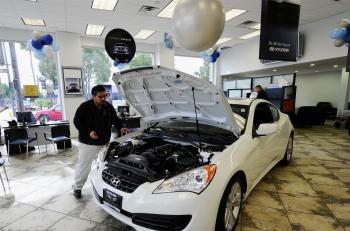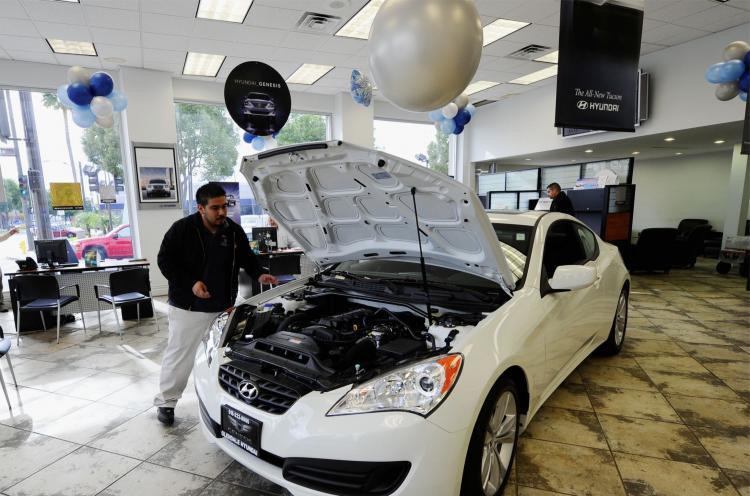Demand for Fuel-Efficiency Drives Up March Auto Sales
Nissan North America said that it enjoyed its best month ever in sales,as Toyota sales slump.

SELLING FAST: Workers move a 2011 Hyundai Genesis Coupe for display in the showroom at a Hyundai dealership in Glendale, Calif. Kevork Djansezian/Getty Images
|Updated:





